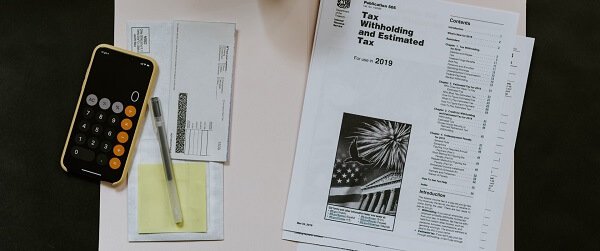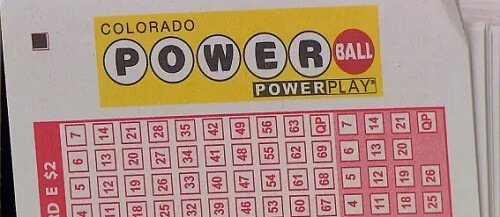
Gambling Tax Calculator
Gamblers can engage in different types of betting in Colorado, including bingo, casino, lotteries, and racetracks. The state requires all casinos and sportsbooks to record all gambling transactions that players make.
Gamblers need to pay winnings taxes when they file income taxes. In this post, we discuss different gambling winnings taxes in Colorado. You can consult a financial advisor if you are an amateur.
How much tax do you have to pay on gambling winnings in Colorado? The state has a flat state income tax of 4.63% for gambling winnings in The Centennial State. If you win big in one of the casinos in Black Hawk, Cripple Creek, Central City, or on one of the licensed sportsbook apps available in the state, you can work out exactly how much tax you need to pay on this easy to use gambling tax calculator.
You can use the calculator to work out tax on gambling winnings from any US state, not just Colorado.
Are Gambling Winnings Taxable in Colorado?
How much taxes do you pay on gambling winnings? Is a common question among gamblers in Colorado.
The Internal Revenue Service (IRS) considers all gambling winnings as taxable income. This includes game shows, bingo, lottery, casinos, sports betting, and racetracks.
A free-to-use gambling winnings tax calculator shows casino tax rates that a casino will use when withholding your video game winnings. You will pay gambling tax as you file income taxes. The operator will use a gambling winnings calculator to determine the amount of tax you will pay after winning a big jackpot.
The taxes on winning calculator shows the state tax that Colorado charges on winnings of up to 50 free spins in certain games, and it is remitted two days after qualifying. You need to use the free spins in a week.
The Colorado Limited Gaming Act imposes a gaming tax on adjusted gross proceeds for all forms of gaming that the state allows.
The Division of Gaming sets the federal gambling tax rate, and about 40 casinos in Cripple Creek, Black Hawk, and Central City use it. The gambling tax calculator bases the tax on a scale of 0.25 percent of the adjusted gross proceeds to 20 percent.
The Department of Revenue collects casino tax from Colorado casinos each month. But, those on Southern Ute Indian Reservations and the Ute Mountain Ute don’t pay state gaming tax.
The state uses the TABOR (Taxpayer Bill of Rights) limit to budget for gaming tax revenue. It passed Amendment 50 in 2009 that permits high bet limits, long operation hours, and extra casino games.
Last year, Colorado passed Amendment 77 that allowed three gaming cities to set new casino games and bet limits. The cities allowed their city councils to regulate new casino games in their jurisdictions. The TABOR limit doesn’t apply to gaming tax revenue associated with Amendment 77 and Amendment 50.
What Are the Gambling Tax Rates in Colorado?
The sports gambling tax calculator in Colorado shows that you will pay 24 percent federal income tax if your taxable gambling winnings from lotteries, wagering pools, and sweepstakes are over $5,000. You will pay the same casino tax if your winnings are 300 times your stake.
How to Claim and Report Colorado Gambling Winnings for Taxes
Colorado has certain gambling and taxes requirements. All betting firms should keep betting records, and gamblers can deduct gambling taxes. The state requires you to report taxable gambling winnings on the W-2G form.
The Colorado Lottery allows punters to redeem winning tickets within 180 days. Consult a local retailer to know whether you will give you a cash prize or send a signed ticket to the Lottery if you won less than $600.
It might take up to two weeks before you receive a check. You have to visit the Colorado Lottery Claim Center to claim prizes that are above $599.
What to Do if You Don’t Receive a Form W-2G in Colorado
You can make an electronic submission on Revenue Online if you don’t receive the form W-2G in Colorado. This method applies to bookies with over 250 payees. Use Revenue Online instead of making email submissions or using magnetic media.
Can I Deduct My Losses?
Sportsbooks in Colorado will submit your W-2 G form to the IRS for gambling winnings in daily fantasy sports that are over $600. The odds should be 300-1 or more. But, your Adjusted Gross Income (AGI) losses won’t reduce.
The bookie will withhold 24 percent for you and remit it to the Internal Revenue Service if you win over $4,999. It is advisable to avoid wagering 300-1 regularly.
Colorado requires you to use a gambling tax calculator to claim wins that you won’t report on the W-2G. Besides collecting bet slips, it is necessary to provide proof of all listed wins to record and offset your losses.
Colorado Lottery Taxes
The taxes on winnings calculator in Colorado states that the Lottery will withhold four percent of lottery winnings that are above $5,000 as state tax and 24 percent as Federal tax. They will increase to four percent state tax and 30 percent Federal tax if you fail to give a Social Security number.
What Happens if I Win the Lottery With a Group of People?
The federal gambling tax rate isn’t constant if you win the lottery as a group. You can decide to pay the entire amount or share it with family and friends.
You need to prove that a group bought the ticket before you won the lottery. If that happens, a ticket’s co-owners can report their share as taxable gambling winnings.
If your group fails to prove co-ownership and report your shares, you will pay the full amount that the lottery tax calculator gives. Besides, the IRS will subject you to a gift tax, as it will treat the part of winnings you gave out as a gift.
The tax rate on gifts can be up to 40 percent. But, it depends on the prize share you gave away. It is advisable to write a co-ownership agreement if all ticket co-owners are family members.
Taxes on Multi-State Lotteries
The income tax rate in Colorado is 4.63 percent. The state set it after it phased out the tiered system whose rates were directly proportional with the amount of money you earned. It is important to report losses and winnings both at the federal and state level.
If you played the lottery in a different state and won, the state tax rate on gambling winnings will depend on the amount of money that the casino withheld. You need to prove it to avoid being double-taxed.
The IRS allows you to deduct gambling losses on your winnings only. You need to itemize them besides the ones in your W-2G threshold.
What Happens If I Don’t Report Gambling Winnings?
Not reporting gambling winnings in Colorado is a criminal offense as it violates state tax provisions. The Colorado Limited Gaming Act (CLGA) classifies it as a felony offense or misdemeanor.
It depends on why you didn’t pay betting tax. You can pay a $100,000 fine or get a three-year prison sentence for the felony offense.
According to the Gaming Act, the offense will be a class 1 misdemeanor if you don’t pay taxes a month from when the gambling tax is due. You have to file a return within the same period. You will get charged with a class 5 felony if you make more than one violation in a year.
Gamblers with a class 1 misdemeanor conviction for violating the CLGA can pay a $5,000 fine or get a six- to 24-month jail term. You will pay up to $100,000 in fine or a 1 to 3 years prison sentence if you get a class 5 felony conviction for violating the Colorado Limited Gaming Act. Also, you will get a compulsory two-year parole.
Resources: Colorado gaming commission


